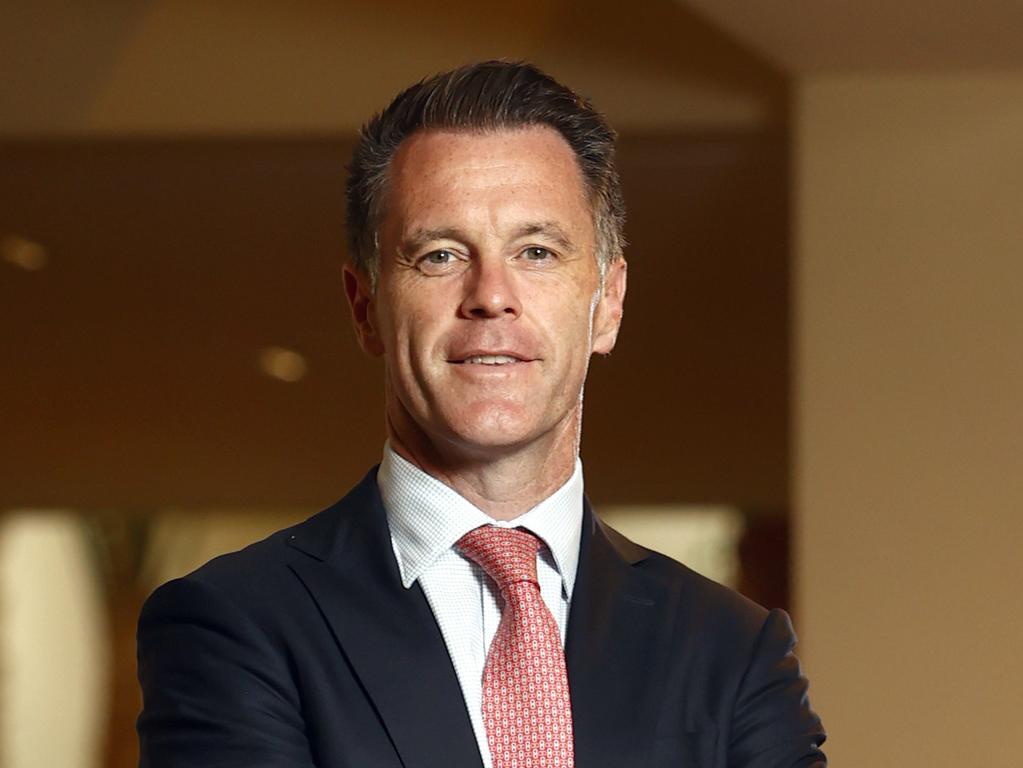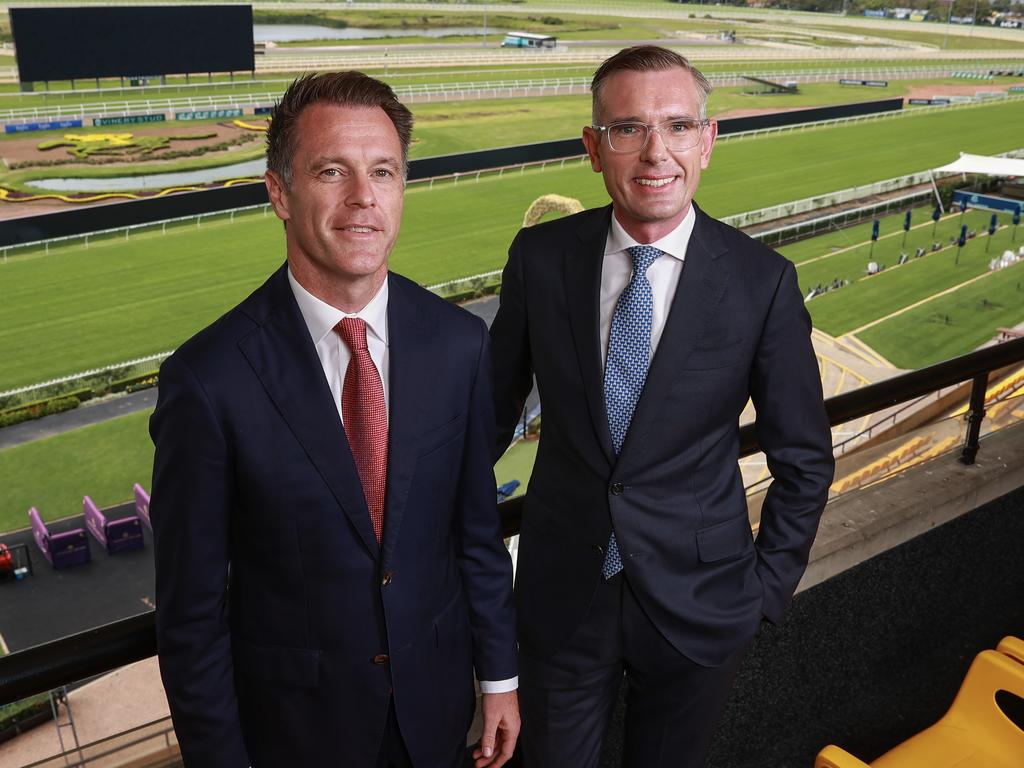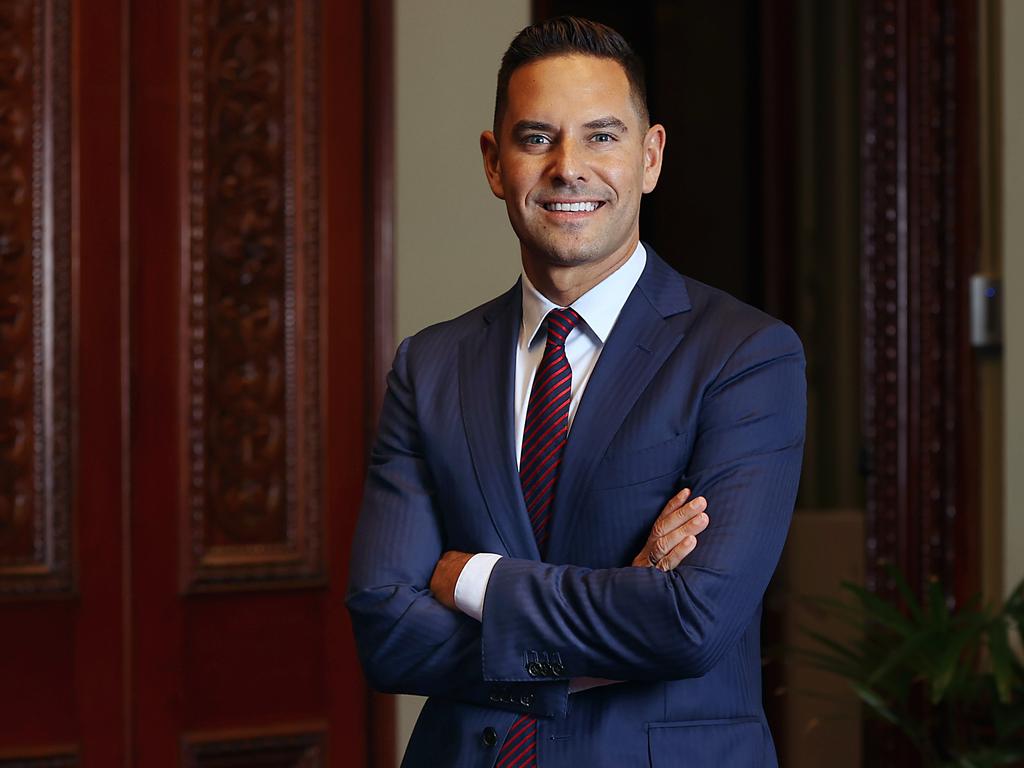NSW election 2023: Chris Minns takes his pitch to Labor’s true believers
He may be favoured to win, but the NSW opposition leader has a difficult path for victory.
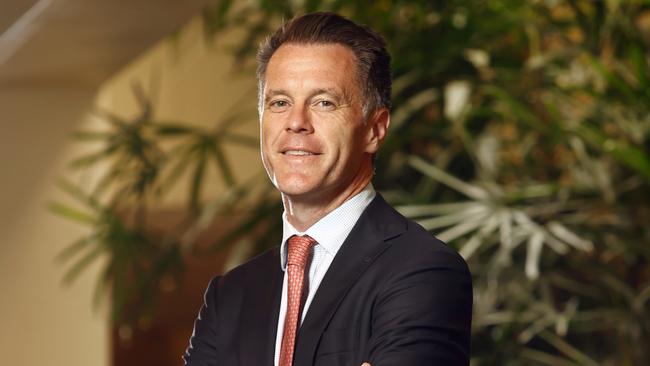
Chris Minns does not like talking about himself. Sitting in a cafe early on a Saturday morning, the Labor leader orders a skim flat white and steers the conversation to Labor’s agenda and the Coalition’s record, having memorised key facts and figures, but avoids personal introspection.
“Well, it’s hard to talk about yourself in the third person,” Minns, 43, tells Inquirer.
“There’s no seminal events that I can point to that end up being metaphors for later public policy decisions other than I’m committed to public service and I think that it is a vocation.
“I think it’s an important thing that people get involved in politics and political life. I’ve lived a life in the suburbs, from a fantastic family home … I’ve seen through my own lens (how) politics and government make a difference and to play a role in that would be, you know, a real privilege.”
In three weeks, the voters of NSW will decide the makeup of the 58th parliament, the oldest in Australia, and if Minns will lead his party back to power after its longest stretch in opposition since before 1910, making him the most populous state’s 47th premier. Much is at stake.
The dominant campaign issue is cost of living, fuelled by high inflation and rising interest rates. Day after day, Minns and Premier Dominic Perrottet duel it out on who has the best strategy to ease the cost of housing, the most visionary road and rail projects, their plans for health and education, and proposals to tackle climate change. Reforming poker machines is also a key issue.
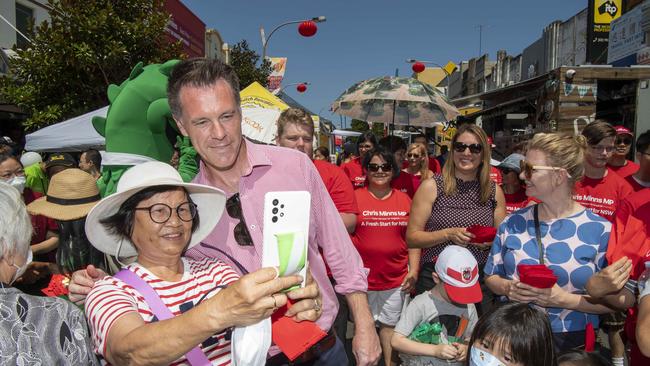
But politics, especially in the social media and digital age, is as much about leadership as it is about policy. So, who is Chris Minns and what does he stand for? Before being elected to parliament in March 2015, he worked as a party official and political staffer, was a Hurstville City councillor, earned a master’s degree from Princeton, had a stint as a stay-at-home dad, and was a retained firefighter.
He lives in Kogarah, south of Sydney, is married to lawyer and entrepreneur Anna and they have three boys: Joe, 14, Nick, 12, and George, 6. His father, John, was a school principal and his mother, Cara, a lawyer. Minns has always had a laid-back style with photogenic coolness and charisma that have often masked his determination and ambition.
He crystallises Labor’s overriding mission as equality of opportunity. He absorbed it growing up in a Catholic household, talking politics around the dinner table and being schooled at Marist College, Kogarah. Minns, who styles himself as a leader with intellect and empathy, says he wants to make sure everyone has the chance to get ahead in life.
“People often talk about fairness,” Minns says “But the actual end result of all of those policies and all that direction and that aspirational talk means that we take people from all over the entire world. They come to Australia, set up a life, and all of a sudden, they are the next generation of doctors and lawyers and professors … I think Labor is a big reason for those conditions.”
Minns has had a rapid rise through Labor ranks. He has been Labor leader only since June 2021. He gained the leadership unopposed on his third attempt, after losing to Michael Daley (2018) and Jodi McKay (2019). He claims not to have considered leading Labor before November 2018, when Luke Foley resigned following a sexual harassment scandal. Others say the fires of ambition have been burning since at least his 20s, probably his teens.
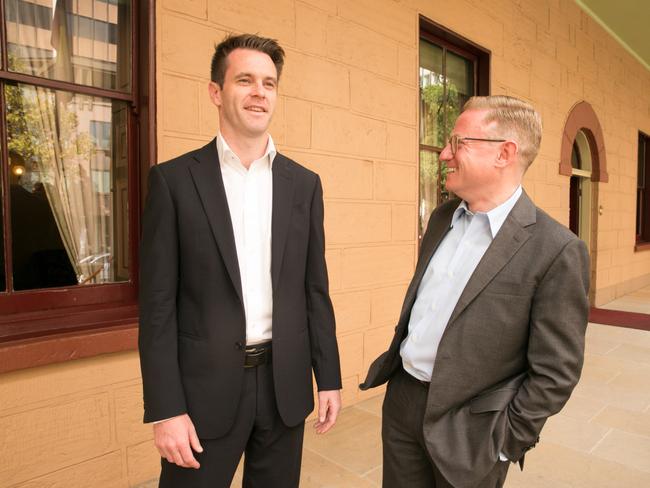
Paul Keating is who Minns identifies as his political hero; it was the 1991 leadership struggle with Bob Hawke that energised his interest in politics. He counts former premier Morris Iemma as a mentor and talks regularly to former NSW Olympics minister Michael Knight. He has a deep interest in US and British politics, reads widely, and devours The Economist magazine each week. Minns inherited a divided and diminished party that had been corrupted when last in government, and the party’s Sussex Street head office has been plagued with indignity. Kristina Keneally led Labor to a landslide defeat, its worst ever, in March 2011.
“The voters heavily punished Labor for those indiscretions at the ballot box,” Minns says. “We accept that. So, you know, anything other than a complete recognition that there was bad elements inside Labor in previous administrations is not going to happen from me. I acknowledge it and we have to do far, far better.”
The last two party secretaries, Jamie Clements and Kaila Murnain, resigned amid scandal. The latest, Bob Nanva, has been utterly pedestrian. The party was restructured after federal intervention but Nanva broke one of the new rules – that the secretary not seek parliamentary office for five years after their appointment – and secured himself a spot on the upper house ticket.
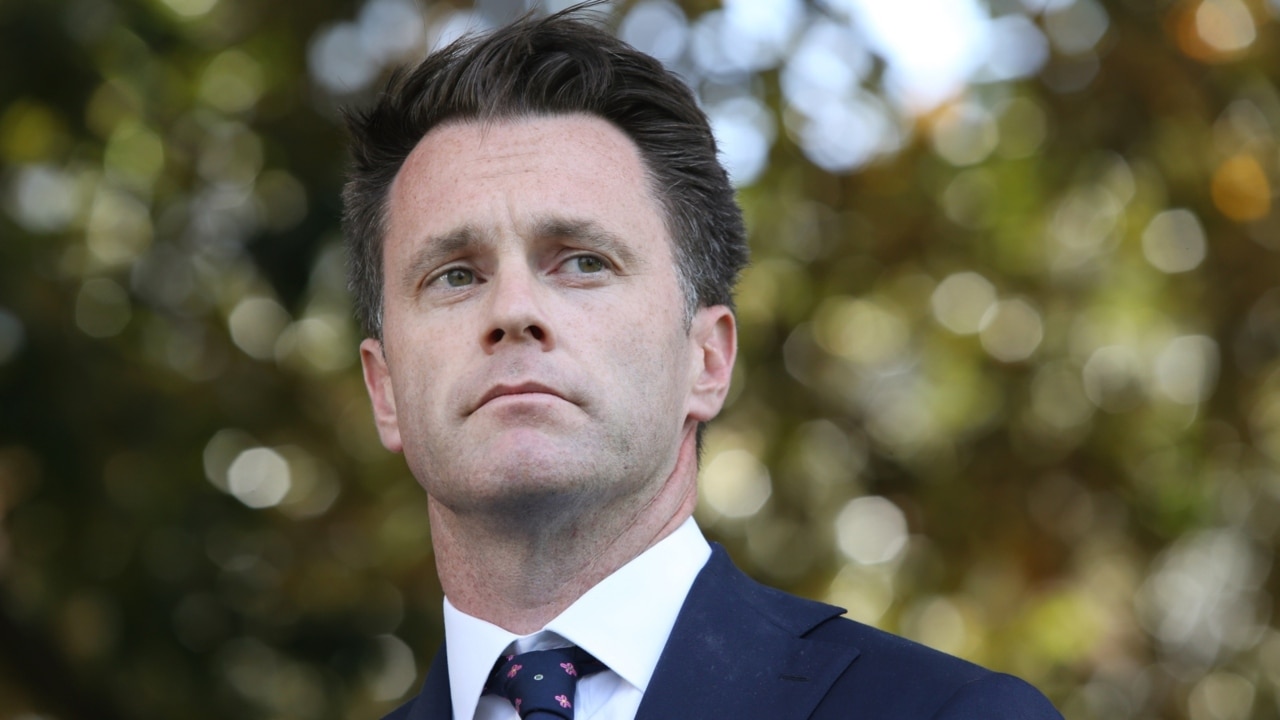
While polls and betting markets have Labor headed for victory, some in the party worry they may not win the nine seats required to form a majority government. Labor will need to win seats in areas where Anthony Albanese failed to make gains at the last federal election. Nanva inexplicably failed to resolve a range of preselections until just recently and some candidates have been forced to bow out due to controversy.
Labor may need to rely on the three Greens MPs or independents if they fall short of 47 seats. Minns insists there will be “no deals, no agreements” with the Greens and “no ministerial positions” offered in return for support. “We’d look for confidence and supply on the floor of the Legislative Assembly,” he says. “But it’s important that the people of NSW know that if they vote Labor, they’re going to get a Labor agenda.”
As Opposition Leader, Minns limited criticisms of the government as it responded to the Covid-19 pandemic, offered bipartisanship and articulated how Labor would do things differently. He tried to be positive while rigorously scrutinising the government, and his team exposed several integrity breaches.
He has already seen off one premier, Gladys Berejiklian, who stood aside while being investigated for corruption, and is now facing his second.
Perrottet and Minns were political prodigies. Perrottet was Young Liberal president; Minns was Young Labor president. Perrottet was elected to parliament in March 2011; Minns in March 2015. Big futures were predicted for both.
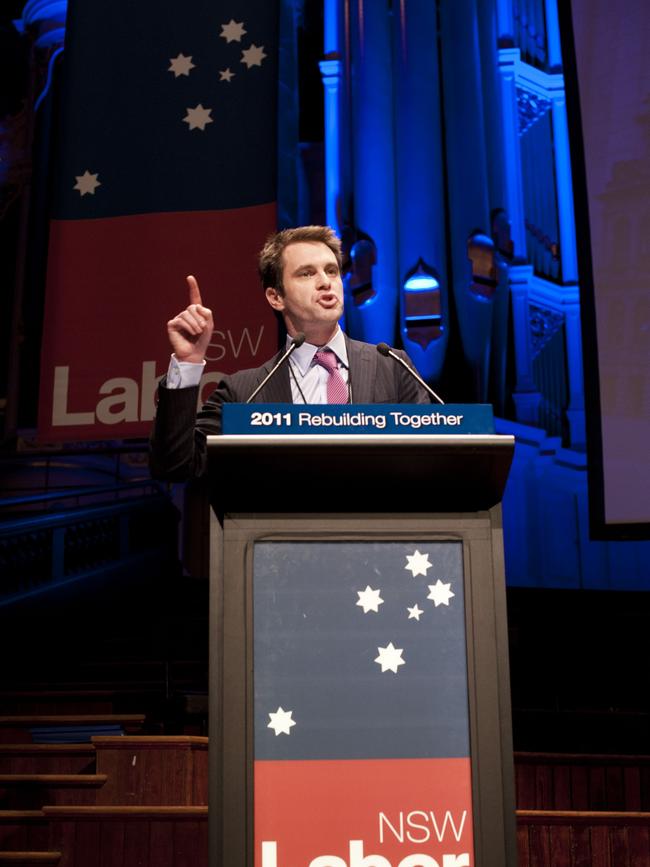
“I think he’s a very good father,” Minns says of Perrottet. “I admire his civility … you are often the unpopular uncle at public functions when you’re the leader of the opposition and I’ve never been to one with him where he hasn’t acknowledged me.” For Minns, political opponents are adversaries, not enemies. There is respect across the divide. It is not well known that one of Minns’ closest friends is Ben Franklin, a minister and upper house Nationals MP. He is godfather to Minns’ son, Nick. (I interviewed them about their friendship in April 2015, just after they were both elected to parliament.)
Labor has unveiled its “fresh-start plan” with a focus on addressing staff shortages in hospitals and schools, improving education outcomes, investing in the health system, capping road tolls and making public transport more accessible, building more affordable housing, and prioritising conservation and climate change.
The “fresh start” slogan and emphasis on having “a plan” is borrowed from Kevin Rudd’s 2007 federal election campaign, and Minns has recreated, almost word for word, a Rudd TV advertisement responding to government attacks. (Rudd’s former press secretary, Lachlan Harris, is advising the Labor campaign.)
Minns has taken heat from anti-gambling advocates for not supporting a cashless gaming card. He supports a trial and spruiks his plan to regulate other aspects of the poker machine industry. But Labor has ceded ground to the Coalition on gaming reform.
NSW faces significant fiscal challenges with a forecast deficit of $11.3bn and net debt of $78.4bn this financial year. Minns has resisted union pressure to legislate staff-patient ratios in hospitals but will remove the public sector wage cap, pledging to negotiate pay rises funded by savings or productivity gains.
Labor’s first 100-day focus would be dealing with the energy crisis. “We’re really concerned about the stability of dispatchable power for business, industry and consumers,” he says. “If we were to win, we’ll immediately be faced with real challenges for supply … and the price associated with that.”
The Guardian Australia described Minns as a young firebrand. The truth is he has always been firmly within the moderate, pragmatic, progressive NSW Labor tradition of William McKell, Neville Wran and Bob Carr. He is part of Labor’s ruling right faction.
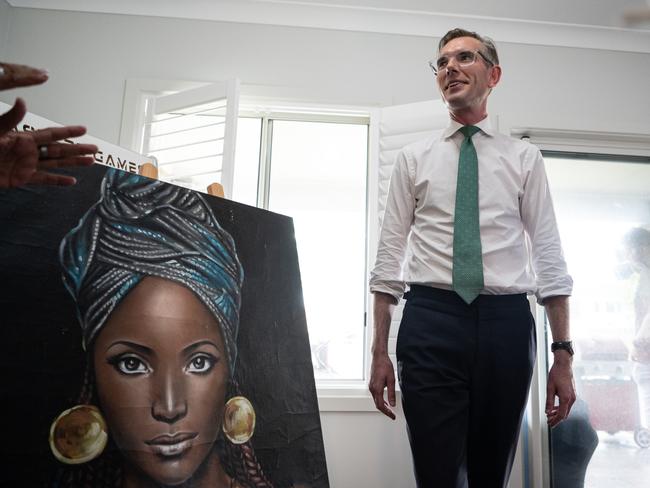
Minns rejects the radical label unless, of course, it refers to radical centrist.
The last four Labor premiers had been ministers. Only Daley on Labor’s frontbench has served as a minister. Minns guarantees that just six shadow ministers – his “executive leadership team” – will be ministers if Labor returns to government: deputy Prue Car, Penny Sharpe, John Graham, Daniel Mookhey, Ryan Park and Jo Haylen. This group, along with manager of opposition business Ron Hoenig, meets three times a week.
“If we were to win, we’ve got to make a decision about the best team in the right spots,” Minns explains. “I’ve got to be in a position where I’m looking at who gets elected and what the composition of the cabinet is … I can’t give a rock-solid guarantee because I don’t know what the personnel will be.”
Accountability and transparency in decision-making, such as ending pork-barrelling grant programs, would be a priority for Labor. Minns says he wants robust debates among ministers where ideas are litigated in cabinet, and the public service is encouraged to offer frank and fearless advice.
As the clock winds down to election day, the Labor leader returns to his script and says the government has become tired, complacent and beset by infighting. Its best days are behind it, he adds, and senior ministers are leaving. In contrast, Minns says, he leads a united, disciplined and focused team ready to govern.
“We haven’t won an election for a long time but we have got a fresh team that is hungry and humble for the opportunity to serve the people of NSW and our focus will be on building the human capital in the state,” he argues.
But, again, Minns eschews the personal. With his second cup of coffee drained, and warming to his themes, the man who wants to be the Premier State’s next premier insists he is the right man for the job.
“Well, look, my pitch to be premier is that I’m someone that is passionate about NSW,” he says.
“I believe that change is required in the state and that having raised my family and lived in NSW my entire life, I understand what the state needs and I’m ready for the challenge.”


